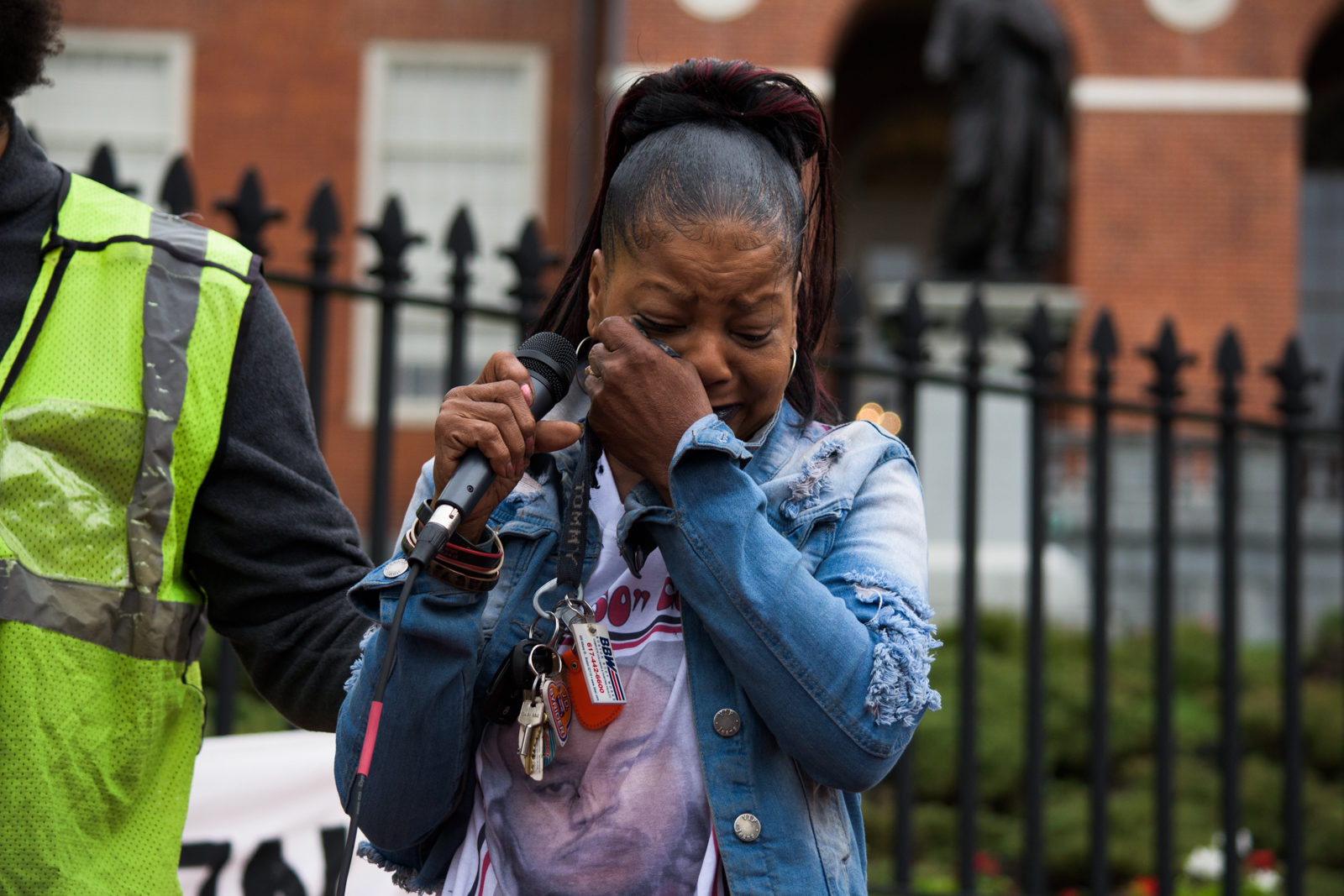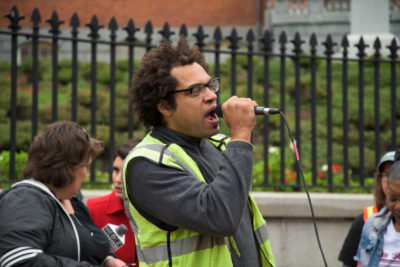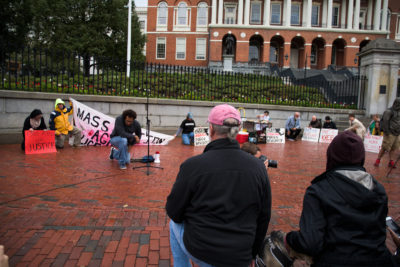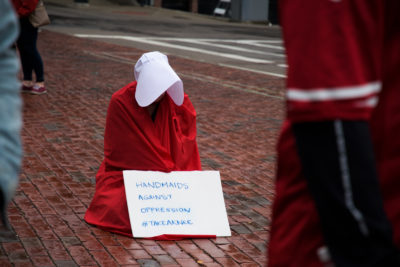
In honor of the one year anniversary of the shooting of Terrence Coleman, a silent, “take a knee” protest was held Sunday afternoon in front of the State House.
Based off of NFL player Colin Kaepernick’s protest when taking a knee during the national anthem, Mass Action Against Police Brutality held the protest to speak out against police violence in the nation at large and within Boston, Brock Satter, an organizer with Mass Action, said.

Satter said in an interview before the protest that it is important for people to join together and take a knee.
“More of us, all of us, should take a knee and demand real change in this country,” Satter said. “We need to unify these efforts and expand them. This protest doesn’t end with Colin Kaepernick … and it doesn’t end with pronouncements and bullying by the president or by some racists. They’re not really concerned with the anthem, they are concerned with the fact people are speaking out about racism and oppression in this country.”
Satter said the protest’s main emphasis was not only on stopping police brutality and holding people accountable, but also ensuring justice for those affected by it. He said he hopes by joining together in protests against police brutality and in support of families like Coleman’s, it is possible to make a difference in the community.
“I strongly believe [this] is the sentiment of millions of people and we need to continue to speak out, stand up, and unify,” Satter said. “And that’s the only way that anything’s going to change. The protest continues. We aren’t going anywhere and they won’t be able to stop this protest from continuing.”

Satter said during the protest people try to attack those who protest via taking a knee by saying they’re anti-patriotic.
“These racists try to hide behind a flag … so called patriotism, but they don’t care about these things,” Satter said. “What they care about is that the truth is coming out and people are exposing it and it may put them in a negative light.”
Hope Coleman, the mother of Terrence Coleman, said the police’s reaction to her son’s shooting one year ago shocked her.
“The two police said, ‘We finally got him out the way. We ain’t got to worry about him anymore,’ and ‘We did a good job,’” Coleman said. “They brag about, after they kill my son, ‘We did a good job.’ I called for help and that’s what I get. My son didn’t deserve this — it wasn’t his time to go. It’s time for these cops to go.”
The march proceeded from the State House to the neighborhood of Attorney General Maura Healey to attempt to persuade her to reopen police shooting cases.
Melania Batista, the mother of Ross Batista, who was shot in 2013, said she wants the case to be solved not only for justice, but for the younger generations of children.
“I don’t want the children to grow up with a hurt mind, with a hunger for justice, and I don’t want them to have a hunger for revenge either,” Batista said. “I want them to know that there was an injustice taken place, that they know that he who kills must also go to prison. This means if nothing is done this problem is going to keep on happening.”

Several attendees said they hope to help strengthen the efforts against police brutality in Boston and help families receive justice.
John O’Brien, 48, of Malden, said reopening even just one of the cases could be what the movement needs for the rest to be opened as well.
“It’s a start, even one [case] is a start,” Obrien said. “We’re asking for justice for all these men who were shot. We just start with one to open the dam and make a precedence.”
Kayleigh Waters, a sophomore at Emerson College, said just because Boston is a more liberal city doesn’t mean it’s free of issues like police brutality.
“Boston gets the rep as a liberal city and, though it’s more liberal than cities in the south, I think we often take that to mean we can just stand by and let things happen,” Waters said. “Though Boston is better than cities in the south it’s not perfect, I think we need to make a change to do that.”
Martin Hunter, 52, of Somerville, said he hopes the rally does not only influence those who see the protest, but also strengthens the community of the protestors.
“I feel we’re throwing roots across the town, we’re planting seeds,” Hunter said. “You never know who walks by and listens. Regardless of also who in the area we affect I think it strengthens the people who come. We gradually build a community.”

























































































































